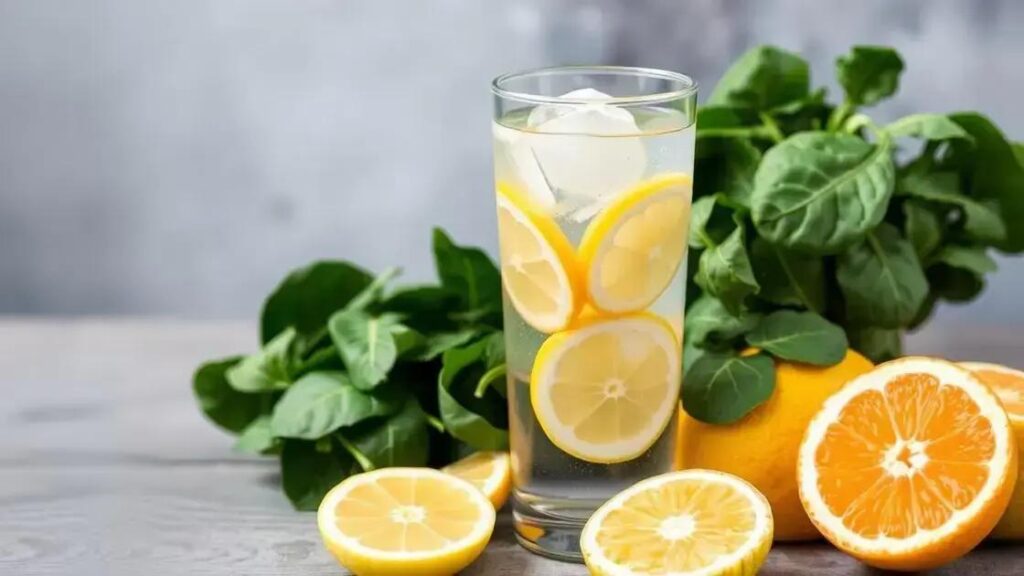To prevent kidney stones, focus on staying well-hydrated by drinking 8 to 10 cups of water daily, incorporate kidney-friendly foods like citrus fruits, leafy greens, and whole grains, limit sodium and animal protein intake, and moderate foods high in oxalate while including sufficient calcium in your diet.
Kidney stones can be a painful experience, but did you know that simple lifestyle changes can help prevent them? Staying hydrated and following a balanced diet are key strategies in avoiding these painful deposits. In this article, we will discuss how to prevent kidney stones through effective hydration practices and dietary adjustments. From understanding what kidney stones are to exploring the best foods to include in your meals, we’ve got you covered. Let’s dive in and learn how to keep your kidneys healthy!
Understanding Kidney Stones
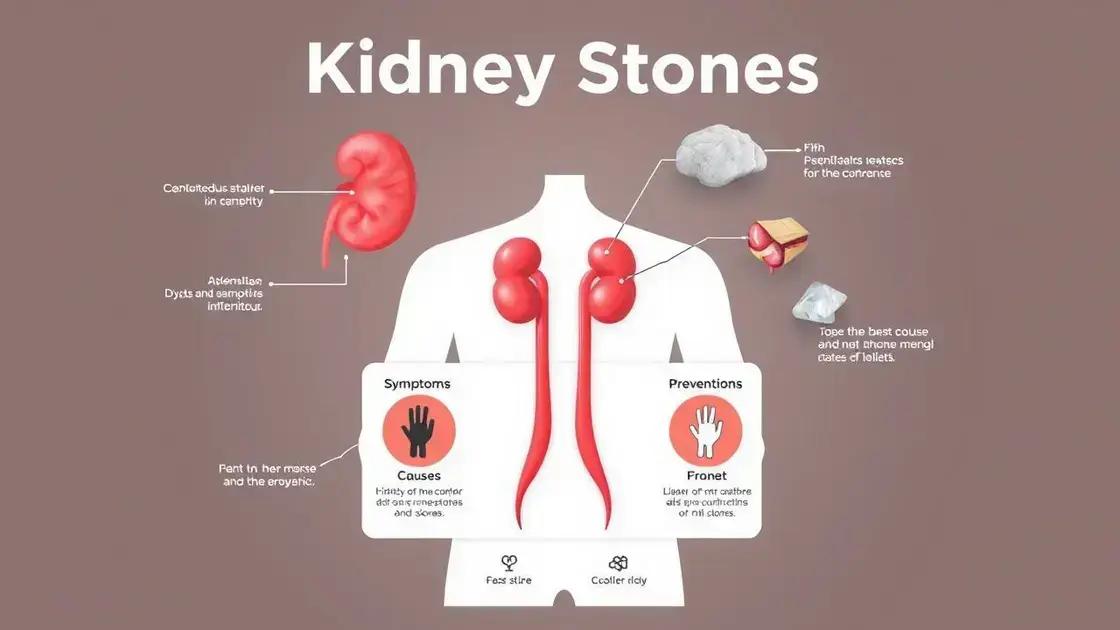
Kidney stones are hard deposits made of minerals and salts that form in your kidneys. They develop when the urine becomes concentrated, allowing minerals to crystallize and stick together. Passing kidney stones can be painful, and knowing how they form is essential for prevention.
Types of Kidney Stones
There are four main types of kidney stones:
- Calcium Stones: The most common type, primarily made of calcium oxalate. High calcium levels in the urine can lead to their formation.
- Struvite Stones: These stones form in response to urinary tract infections. They can grow quickly and become quite large.
- Uric Acid Stones: These stones occur when the urine is too acidic. They are more common in men than women.
- Cystine Stones: A rare hereditary disorder called cystinuria leads to these stones, which occur when the urine contains too much of the amino acid cystine.
Symptoms of Kidney Stones
Kidney stones may not cause symptoms until they move within the kidney or pass into the ureters. Symptoms can include:
- Severe pain in the back, below the ribs, or in the lower abdomen and groin.
- Pain during urination.
- Blood in urine, which may appear pink, red, or brown.
- Cloudy or foul-smelling urine.
- Frequent urination or an urgent need to urinate.
Causes of Kidney Stones
A variety of factors can contribute to the formation of kidney stones:
- Dehydration: Not drinking enough water can lead to concentrated urine, increasing the risk of stones.
- Diet: High intake of certain foods, like those rich in calcium, oxalate, or purines, can contribute to stone formation.
- Obesity: Being overweight increases the risk of kidney stones due to changes in the acid-base balance of urine.
- Medical Conditions: Certain conditions, like diabetes or gastrointestinal disorders, can increase the likelihood of developing kidney stones.
Role of Hydration in Prevention
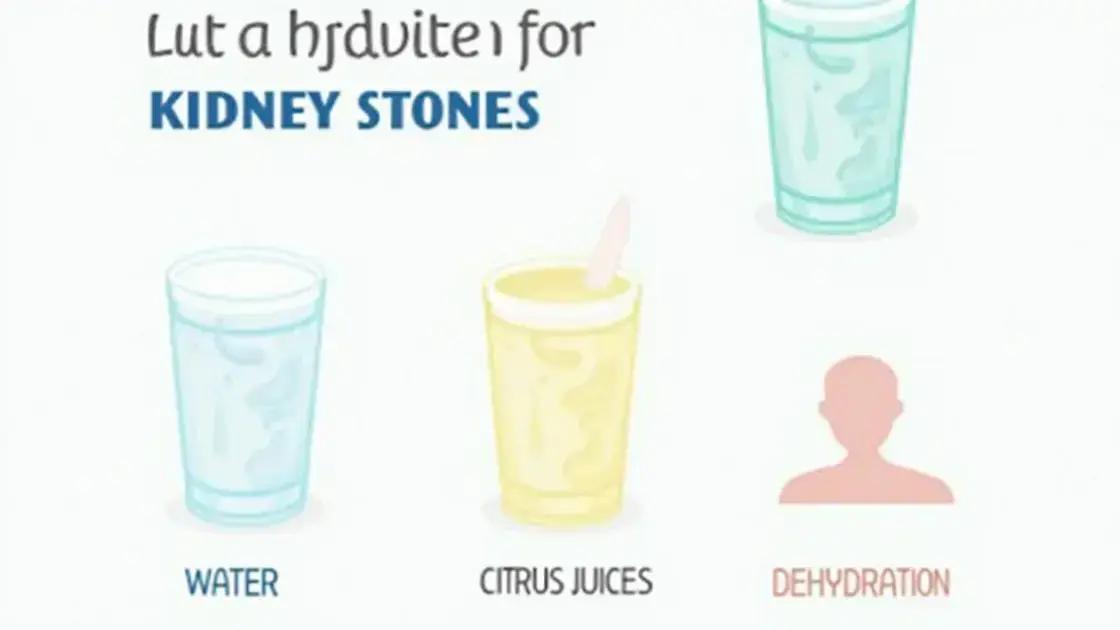
Hydration plays a critical role in preventing kidney stones. When you drink plenty of fluids, you help dilute the substances in urine that could form stones. Staying well-hydrated can decrease the chances of stone formation significantly.
Proper Fluid Intake
It’s recommended to drink enough fluids throughout the day to produce at least 2 to 2.5 liters of urine daily. This generally means drinking about 8 to 10 cups of water daily, but individual needs may vary based on activity level, environment, and overall health.
Importance of Water
Water is the best choice for hydration. It helps keep your urine clear and decreases the concentration of minerals that can lead to stones. Aim to drink water throughout the day, especially if you are active or live in a hot climate.
Other Hydrating Beverages
While water is the best option, other beverages can contribute to hydration. These include:
- Citrus juices: Lemonade and orange juice can increase citrate in urine, which may help prevent stones.
- Herbal teas: Some herbal teas can provide hydration without added sugars or caffeine.
Signs of Dehydration
It’s essential to recognize the signs of dehydration, which can include:
- Dark yellow urine.
- Dry mouth or skin.
- Fatigue or dizziness.
Pay attention to these signs to maintain adequate hydration.
Foods That Help Prevent Kidney Stones
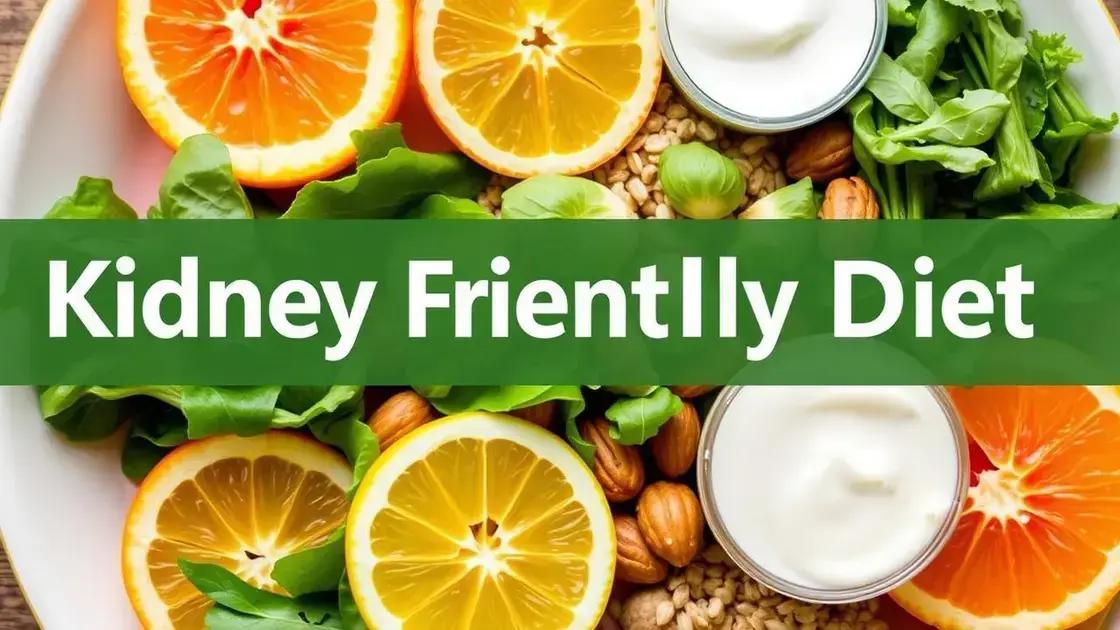
Eating the right foods can help minimize your risk of developing kidney stones. A balanced diet that includes certain fruits, vegetables, and grains not only supports overall health but also contributes to kidney stone prevention.
Citrus Fruits
Citrus fruits like lemons, oranges, and grapefruits are beneficial for kidney stone prevention. They contain citrate, which can help break down stones and prevent new ones from forming. Consider adding fresh citrus to your diet through juice or whole fruits.
Leafy Greens
Incorporate greens such as spinach, kale, and swiss chard into your meals. These greens provide essential vitamins and minerals while also containing magnesium, which may help reduce stone formation.
Whole Grains
Opt for whole grains like brown rice, quinoa, and whole wheat bread. Whole grains are high in fiber and can help prevent stone formation by supporting healthy digestion.
Nuts and Seeds
Almonds, walnuts, and pumpkin seeds are excellent snacks that can also aid in prevention. They are good sources of healthy fats and may help in maintaining a proper balance of minerals in urine.
Low-Fat Dairy
Incorporate low-fat dairy products such as yogurt and cheese. They provide calcium, which can be beneficial in preventing stones. However, moderation is key since excessive calcium can lead to stone formation in some individuals.
Limit Foods with High Oxalate
While including beneficial foods, it’s essential to limit those high in oxalate, such as beets, chocolate, and nuts. Reducing oxalate intake can lower the risk of calcium oxalate stones.
Tips for Maintaining a Kidney-Friendly Diet
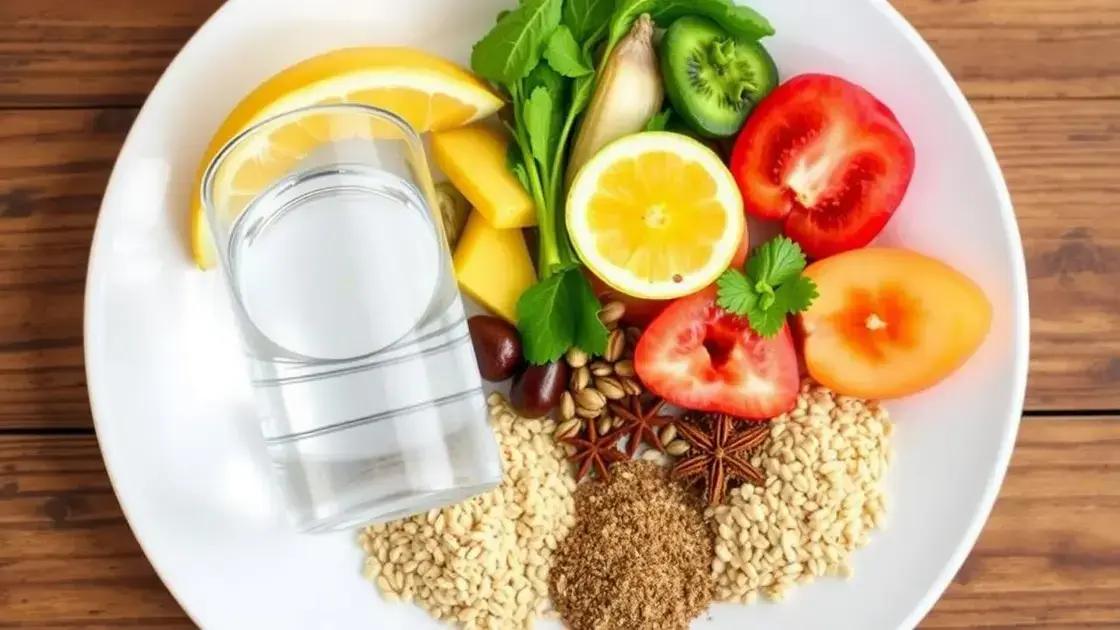
Maintaining a kidney-friendly diet is essential for preventing kidney stones. Here are some practical tips to help you make better dietary choices.
Stay Hydrated
Drinking plenty of water is crucial. Aim for at least 8 to 10 cups daily. Proper hydration helps dilute substances in urine and reduces stone formation.
Moderate Sodium Intake
Limiting your salt intake can help. High sodium levels can increase calcium in urine, leading to stone formation. Aim for less than 2,300 mg of sodium a day.
Choose Whole Foods
Opt for whole foods instead of processed items. Whole fruits, vegetables, and whole grains can provide essential nutrients without the added sugars and unhealthy fats that could elevate stone risk.
Include Foods Rich in Calcium
While it may seem counterintuitive, consuming foods with calcium can help prevent stones. Incorporate low-fat dairy and green leafy vegetables to meet your calcium needs without excess.
Limit Animal Protein
High animal protein intake can increase uric acid levels in urine, contributing to stone formation. Consider reducing red meat, poultry, and fish in favor of plant-based proteins such as beans and legumes.
Watch Oxalate Intake
Some foods are high in oxalate, which can contribute to calcium oxalate stones. Reduce intake of foods like spinach, rhubarb, and soda while balancing with appropriate amounts of calcium to reduce absorption.
Use Herbs and Spices
Flavor meals with herbs and spices instead of salt. Basil, oregano, and cumin can add flavor without increasing sodium.
In Conclusion: Preventing Kidney Stones with Lifestyle Choices
Preventing kidney stones is within your control through the choices you make daily. By prioritizing hydration, incorporating kidney-friendly foods, and being mindful of your dietary habits, you can significantly reduce your risk of developing stones.
Understanding the role of hydration and nutrition can empower you to make better decisions for long-term kidney health. Remember to focus on whole foods, manage sodium and protein intake, and stay hydrated with plenty of water.
With these strategies in place, you foster a healthier diet and lifestyle that supports your kidneys and overall well-being. Embrace these changes for a kidney-friendly life!
FAQ – Frequently Asked Questions about Preventing Kidney Stones
What are kidney stones?
Kidney stones are hard mineral and salt deposits that form in the kidneys, leading to severe pain and discomfort.
How can hydration help in preventing kidney stones?
Staying well-hydrated dilutes the substances in urine that can form stones, reducing the risk of developing them.
What foods should I include in my diet to prevent kidney stones?
Include citrus fruits, leafy greens, whole grains, nuts, low-fat dairy, and drink plenty of water.
Are there foods I should avoid to reduce the risk of kidney stones?
Yes, limit foods high in oxalate like spinach and beets, as well as reduce sodium and animal protein intake.
How much water should I drink daily to prevent kidney stones?
Aim for at least 8 to 10 cups of water a day to help produce enough urine and prevent stones from forming.
Can I still eat calcium-rich foods?
Yes, consuming calcium-rich foods in moderation can help prevent stones, but avoid excessive calcium supplements.

